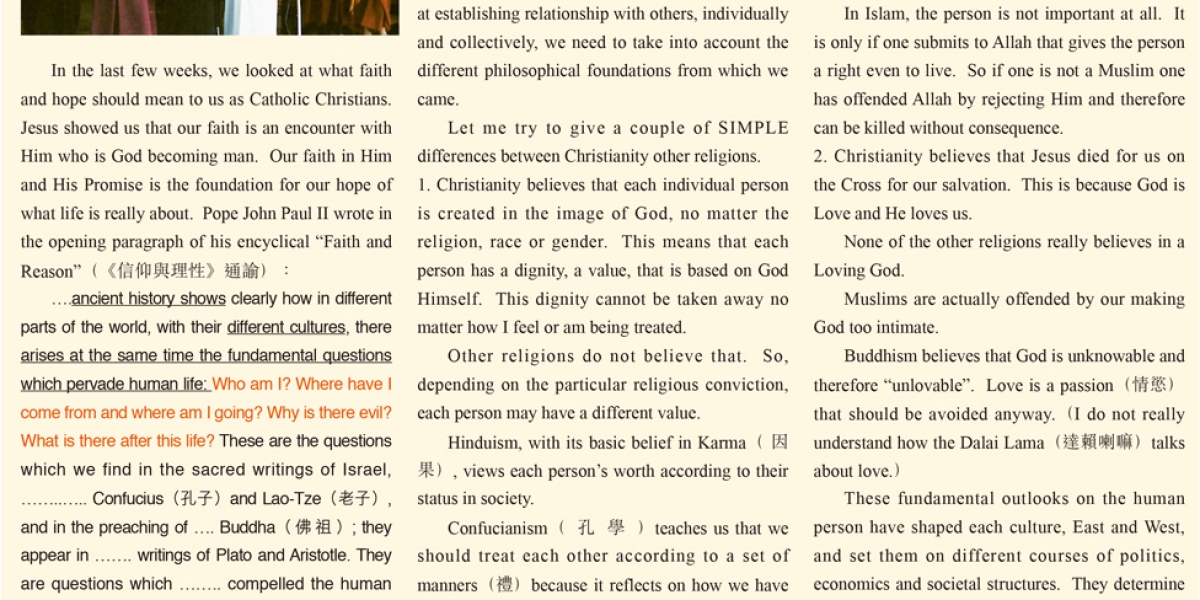
Faith and Culture
In the last few weeks, we looked at what faith and hope should mean to us as Catholic Christians. Jesus showed us that our faith is an encounter with Him who is God becoming man. Our faith in Him and His Promise is the foundation for our hope of what life is really about. Pope John Paul II wrote in the opening paragraph of his encyclical “Faith and Reason”(《信仰與理性》通諭):
….ancient history shows clearly how in different parts of the world, with their different cultures, there arises at the same time the fundamental questions which pervade human life: Who am I? Where have I come from and where am I going? Why is there evil? What is there after this life? These are the questions which we find in the sacred writings of Israel, ……..….. Confucius(孔子)and Lao-Tze(老子), and in the preaching of …. Buddha(佛祖); they appear in ……. writings of Plato and Aristotle. They are questions which …….. compelled the human heart. In fact, the answer given to these questions decides the direction which people seek to give to their lives.
It is this ANSWER that has influenced each culture and society so much so that when we look at establishing relationship with others, individually and collectively, we need to take into account the different philosophical foundations from which we came.
Let me try to give a couple of SIMPLE differences between Christianity other religions.
1. Christianity believes that each individual person is created in the image of God, no matter the religion, race or gender. This means that each person has a dignity, a value, that is based on God Himself. This dignity cannot be taken away no matter how I feel or am being treated.
Other religions do not believe that. So, depending on the particular religious conviction, each person may have a different value.
Hinduism, with its basic belief in Karma(因果), views each person’s worth according to their status in society.
Confucianism(孔學)teaches us that we should treat each other according to a set of manners(禮)because it reflects on how we have been taught and brought up. That is, it is not how you are treated that is important, but how I treat you. It is my value that has been affected. If I do not treat you as you should, I have disgraced, devalued, myself.
In Islam, the person is not important at all. It is only if one submits to Allah that gives the person a right even to live. So if one is not a Muslim one has offended Allah by rejecting Him and therefore can be killed without consequence.
2. Christianity believes that Jesus died for us on the Cross for our salvation. This is because God is Love and He loves us.
None of the other religions really believes in a Loving God.
Muslims are actually offended by our making God too intimate.
Buddhism believes that God is unknowable and therefore “unlovable”. Love is a passion(情慾)that should be avoided anyway.(I do not really understand how the Dalai Lama(達賴喇嘛)talks about love.)
These fundamental outlooks on the human person have shaped each culture, East and West, and set them on different courses of politics, economics and societal structures. They determine the way we treat our friends, our enemies and our casual acquaintances. We will look at some of these next time.






